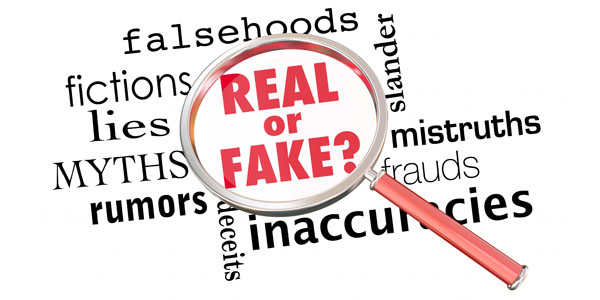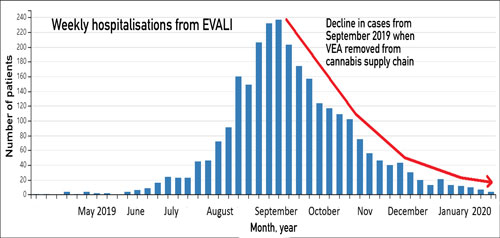
Vaping nicotine does not cause EVALI – new study finds
Posted on August 24, 2022 By Colin
THE SERIOUS LUNG CONDITION known as EVALI is not caused by vaping nicotine as falsely claimed by vaping opponents, according to a new study published today in Drug and Alcohol Review.
EVALI (E-cigarette, or Vaping, product use-Associated Lung Injury) causes breathing difficulty, shortness of breath and chest pain. In the US outbreak, it led to 2,807 hospitalisations and 68 deaths by February 2020.
It soon became clear that EVALI was caused by vaping black market THC (cannabis) oils contaminated with vitamin E acetate (VEA).
However vaping opponents, including the Australian government and state health departments have continued to maintain fear and doubt that vaping nicotine also causes EVALI
VEA is not soluble in nicotine e-liquids and has never been detected in nicotine e-liquids. No chemicals in nicotine vapes have been identified which could cause EVALI.
Unfounded claims that nicotine vaping caused EVALI have been used to justify restrictive policies to reduce the uptake of vaping and this has been harmful to public health.
One minute video explanation of the study
THC users deny using it
Fourteen percent of vapers with EVALI denied vaping THC, leading to the assumption that nicotine vapes were the cause.
However, people often deny using THC, especially where it is illegal. In one study, over two-thirds of frequent cannabis users tested positive after claiming that they had not used cannabis in the past week.
This mis-reporting also occurred in the EVALI outbreak. Some THC vapers initially claimed to have used nicotine-only but were later found to have used THC after interviews with family and friends or from testing of biological samples.
Timing and location of EVALI
The EVALI outbreak occurred almost exclusively in North America. Cases rose rapidly to a peak and then disappeared in early 2020 when VEA was eliminated (figure below). This is consistent with a contaminated supply chain for illicit THC products.

Hospitalisations for EVALI (CDC)
Furthermore, there have been no verified cases of EVALI from vaping nicotine before, during or after the outbreak and the composition of nicotine vaping liquids has remained unchanged during this time.
Misdiagnosis of EVALI cases
Some cases diagnosed with EVALI may have had other causes, including two cases diagnosed in Australia. One case in an adolescent was most likely caused by a urinary infection which spread to the lungs. A second case in a 71-year old man was more likely due to a lung infection as a complication of severe emphysema from 40 years of past smoking.
Government misinformation
The federal Health Department website has warned since September 2019 that ‘International evidence is emerging of a possible link between the use of e-cigarettes and lung disease’, referring to the EVALI outbreak.
Thirty-one Australian health professionals wrote to the Chief Medical Officer pointing out that this health advice was inaccurate. However, it has remained unchanged even as the evidence against nicotine vaping has continued to strengthen.
In March 2022, NSW Health launched the ‘Do you know what you are vaping?’ education campaign which claimed that ‘vaping has been linked to serious lung disease’ Similar false claims are also being made by Queensland Health and the WA Health Department.
However, in October 2019, Public Health England (PHE) stated that EVALI ‘is not a problem linked to long-term use of regulated nicotine vaping products.’ PHE reported that misinformation about EVALI can have deadly effects by deterring smokers from switching and driving vapers back to smoking. They stated
There is a real risk therefore that such a reaction will mean people continue to smoke, which will undoubtedly put lives at risk
What needs to be done now
The name EVALI is misleading as it falsely implies that all vaping products cause this disorder, when the only identified cause has been vitamin E acetate in THC devices. A more accurate name would be VALI (Vaping Associated Lung Injury) or THCVALI.
It is time for Australian health authorities and media to correct the continued miscommunication about the causes of the EVALI outbreak as misinformation is harming public health.
Vaping nicotine should be decriminalised in Australia and made freely available without a prescription to adult smokers as a quitting aid.